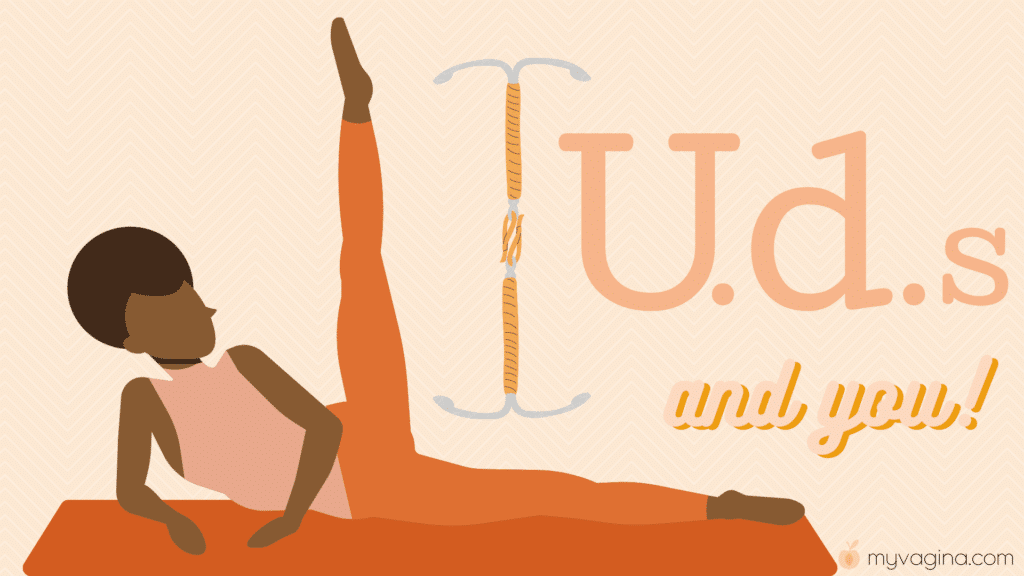The intrauterine device (IUD) is a little T-shaped device that sits in your uterus, causing the most minor of irritations to your uterine lining that changes the conditions in your uterus, acting as a contraceptive to prevent pregnancy. This occurs in several ways, but includes stopping sperm from reaching an egg.
IUDs have a skinny string, like a fishing wire/skinny string but much smaller, so it can be removed, but you can’t feel it. From time to time, a sexual partner may find they can feel it, and your doctor can actually help you with that by winding the string up closer to your uterus, or snipping it shorter. Usually, however, nobody can feel it.
IUDs mean you can have your normal cycle, but not get pregnant, which is great for people who want a full, normal cycle, and no artificial hormonal interference. You get to feel the ebbs and flows of your body doing its thing, which is a good way of knowing where you’re at, physically.
IUDs are not for everyone. Sometimes they can make your periods heavier, cause bleeding between cycles, and generally cause your body to react like it has a piece of copper and plastic stuck inside it, as it actually does. Other times, it doesn’t make a lick of difference and can be the best thing that ever happened to you.
There are two types commonly available: the copper IUD and the hormonal IUD. Which one is best for you will depend on your personal health history, body, and budget. The Mirena is often subsidised, while the copper IUDs can be less easily available, depending on where you live. Ask your doctor for their advice, do your own research, and make an informed choice.
The copper IUD
The copper IUD does not have any hormones, while the hormonal IUD releases a small amount of progestin, artificial progesterone. This makes the cervical mucous thicker, and causes more of a barrier effect for sperm. Both types have very low failure rates, and in fact are known to be female gynaecologists’ contraceptive of choice.
It is certainly worth a try, because it is very safe, very effective, works immediately and you regain your fertility upon removing it, which is a simple procedure. It is becoming more and more popular, as other hormonal methods prove to be very interrupting to other body systems.
The hormonal IUD (Mirena)
The hormonal IUD, sold as the Mirena device, contains synthetic progestin, which causes the lining of the uterus and cervix to thicken, and can block ovulation.
IUDs as abortion agents (or not) – the myth and truth
IUDs are not abortifacients, as some lobby groups will have you believe. This rumour comes from the fact that the IUD irritates the lining of the uterus, and the theory was that it didn’t prevent eggs from being fertilised, so fertilised eggs were simply getting expelled from the uterus with the period, as they were unable to implant due to the irritation. This is not true. There aren’t monthly fertilised eggs found.
There is plenty of evidence that IUDs are contraceptive devices, and if you need more evidence, read this, written as far back as 1989. There is plenty more where that came from.
IUDs are safe, effective contraception, and are a good option because while many women can’t tolerate hormones, many women can tolerate the non-hormonal copper IUD.
Get a fresh perspective with a qualified, experienced vulvovaginal specialist naturopath.
This product has multiple variants. The options may be chosen on the product pageThe most comprehensive vaginal microbiome test you can take at home, brought to you by world-leading vaginal microbiome scientists at Juno Bio.
Easy-to-use BV and AV treatment program.
Promote and support a protective vaginal microbiome with tailored probiotic species.






